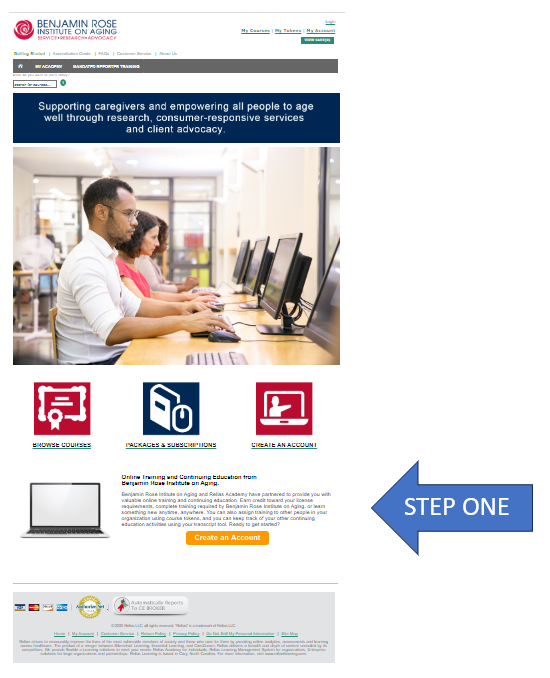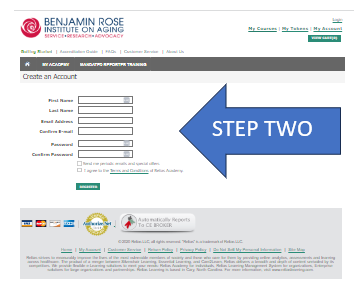
Mandated Reporter Online Training
Online training courses for mandated reporters of adult abuse, neglect and exploitation.

Learn to identify and report adult maltreatment.
As many states expand the scope of professionals who are required by law to report potential instances of adult abuse, neglect and exploitation, two newly-introduced online courses from Benjamin Rose Institute on Aging provide mandated reporters with the consistent, effective and practical training they need.
These self-guided, interactive modules allow participants to understand the various types of abuse, recognize potential cases of adult maltreatment, and understand how and when to report them to the proper authorities.
The two modules take about 60 minutes each to complete and are very affordably priced to allow access to a wide range of professionals. The courses are currently specific to the State of Ohio, but can be easily modified to accommodate the regulations and reporting structures of other states.
Mandated reporters of adult abuse now span a wide range of professionals. In Ohio, for example, nursing home workers, attorneys and financial planners, dentists and medical professionals, clergy, coroners, real estate brokers, firefighters and EMTs are among the many professionals who are required by law to report known and suspected cases of abuse. Simply put, training these professionals in identification of adult maltreatment and in proper reporting protocols can reduce suffering and save lives.
Training Module 1 enables any mandated reporter to understand and define the various types of abuse.
This module enables participants to identify the common characteristics of both victims and perpetrators, as well as understand the reasons why abuse is so under-reported across the country.
Actual case studies are used to exemplify real -world scenarios and to aid participants in identifying potentially abusive situations.
Training Module 2 helps mandated reporters understand their responsibility to report abuse.
This module provides participants with a downloadable Reporting Protocol, a step-by-step guide for understanding which state agency is responsible for investigating abuse depending on client characteristics.
Also included is access to the Recognizing Abuse Tool, developed by Benjamin Rose Institute on Aging and used in various federally funded projects in Utah, Oklahoma and Texas to screen for suspected abuse.
Cost of these online courses is just $10 for Module 1, $15 for Module 2 or $20 for both. Bulk discounts are available for professional associations offering the trainings to multiple members.
Continuing Education Credits Available
The training has been approved for nursing*, social work ethics**, and continuing legal education hours*** in Ohio.
*This CE Activity, OLN-I-3147-2023 offered by Benjamin Rose Institute on Aging has been approved for 1.0 contact hour by the Ohio Board of Nursing through the approver unit at the Ohio League for Nursing (OBN-006-92) and the program is approved to be offered through September 18, 2025. This CE Activity, OLN-I-3148-2023 offered by Benjamin Rose Institute on Aging has been approved for 1.0 contact hour by the Ohio Board of Nursing through the approver unit at the Ohio League for Nursing (OBN-006-92) and the program is approved to be offered through September 18, 2025.
**The Ohio Counselor, Social Work, and Marriage and Family Therapist Board has also approved the modules (CE Broker Tracking Numbers: MSX06238964 & MSX06238542) for one ethics continuing education hour each through June 30, 2025.
***The Supreme Court of Ohio Commission on Continuing Legal Education has approved each self-study module for 1.0 general contact hour through December, 31, 2024.
Enrolling is Fast and Easy.
Step One:
Click the create an account button.

Step Two:
Enter your information into the form.

Step Three:
Select “Mandated Reporter Training” from the Navigation Bar on the top of the page.

Step Four:
Select which course or courses you would like to purchase.

For more information or to discuss bulk purchases or modifications for specific states, contact [email protected].
This project was made possible by funding from the Ohio State Bar Association.